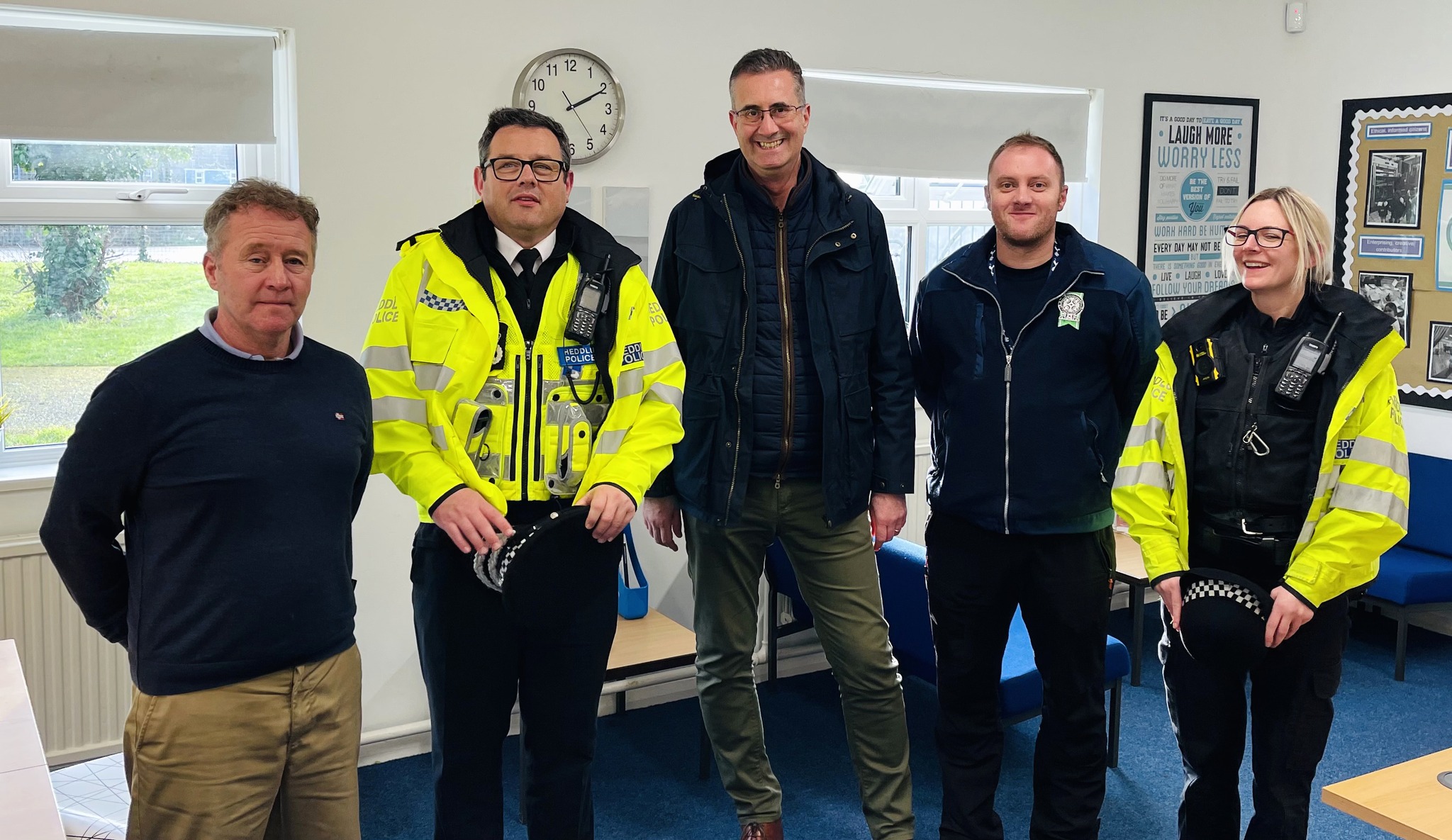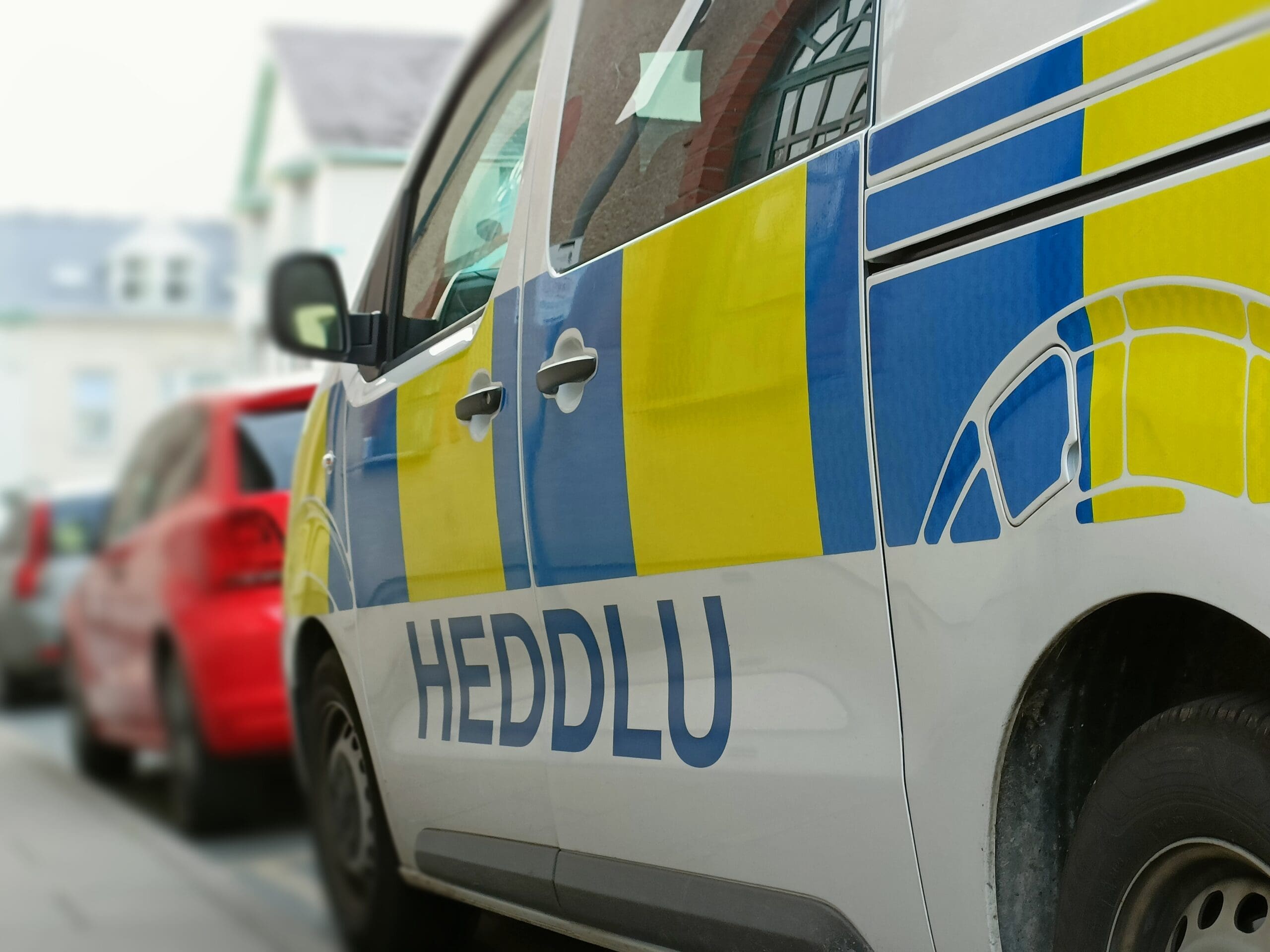Crime
The antisemitic kidnapping in West Wales: The motives behind the crime

THE SENTENCING of three men for an antisemitic kidnapping in Carmarthenshire has reignited concerns about the rise of hate crimes in the UK. The attack, which saw an Israeli music producer lured to a remote location under false pretenses before being assaulted and detained, has been widely condemned. The case raises significant questions about the intersections of racial hatred, criminal opportunism, and law enforcement’s ability to curb such incidents before they escalate.

What sets this case apart is not just the brutality of the attack but the underlying motivations. As revealed in court, the perpetrators—Mohammad Comrie, 22, Faiz Shah, 22, and Elijah Ogunnubi-Sime, 20—were driven by a mix of financial gain and racial hatred. Using a fictitious music production company, they tricked the victim into traveling to Wales before launching their assault.

The court found that all three men had specifically targeted the victim due to his Jewish identity, making this a case of both opportunistic crime and hate-driven violence. The victim later described his experience as his “personal October 7th,” referencing the 2023 Hamas attack on Israel, underscoring the deep psychological impact of the ordeal.
A growing trend of antisemitism
The case is not an isolated event but part of a wider pattern of increasing antisemitic incidents. Between October 2023 and September 2024, the Community Security Trust (CST) recorded 5,583 antisemitic incidents in the UK—a 204% rise from the previous year. This surge has heightened concerns about the safety of Jewish individuals across the country.
Experts have pointed to a combination of factors fueling this rise. Geopolitical tensions, the spread of extremist ideologies through social media, and a broader trend of rising hate crimes across Europe have all contributed to the problem. The rise of online radicalization has played a significant role in fostering antisemitic sentiments, creating an environment where individuals feel emboldened to act on their prejudices.



Legal fallout and sentencing
On March 14, 2025, Swansea Crown Court sentenced Comrie, Shah, and Ogunnubi-Sime to eight years and one month each. Their guilty pleas on the first day of trial indicated a case so clear-cut that mounting a defense proved impossible. The sentencing, while providing a sense of justice, has left many questioning whether such punishments serve as an effective deterrent.
Hate crime laws in the UK have evolved over the years, but many campaigners argue they still do not go far enough. Calls for harsher penalties for racially motivated crimes have grown louder, with some urging for mandatory minimum sentences for hate-related offenses. Others believe that law enforcement needs greater resources to tackle hate crime networks before they escalate into violent incidents.
The role of law enforcement and community response
Dyfed-Powys Police acted swiftly in apprehending the suspects, aided by a police helicopter and ground units. However, the incident raises broader concerns about law enforcement’s role in preventing hate crimes before they happen. Investigations into the trio’s online activity could shed light on whether they were influenced by extremist content or whether they had connections to wider hate groups.

The CST has since provided security advice and psychological support to the victim, but the community remains on edge. The response from Jewish organizations has been one of renewed vigilance, with many calling for increased security measures at synagogues, schools, and cultural centers.
Mark Gardner, CST Chief Executive, summed up the gravity of the case: “The combination of criminality and anti-Jewish hatred could easily have resulted in a far worse, perhaps even fatal, outcome.”
The psychological and societal impact
Hate crimes do not just affect individual victims—they send shockwaves through entire communities. This incident has left the Jewish community in the UK feeling increasingly vulnerable.
Psychologists have long studied the effects of hate crimes on victims, noting that targeted attacks based on race or religion often lead to more profound and lasting trauma than random acts of violence. Victims of hate crimes frequently report heightened levels of anxiety, difficulty trusting others, and a lasting sense of insecurity. The fear that such an attack could happen again compounds the trauma, making recovery even more difficult.
Beyond the Jewish community, cases like this can have a corrosive effect on social cohesion. Hate crimes fuel division, create fear, and weaken the bonds that hold communities together. Experts warn that unless action is taken to address the root causes of antisemitic hate crimes, they will continue to rise.
The bigger picture
This case underscores the evolving nature of antisemitic threats—no longer limited to verbal abuse or vandalism but now involving calculated acts of violence. It serves as a stark warning that tackling hate crime requires more than just police intervention; it demands a societal shift in attitudes, stronger legal deterrents, and increased vigilance from both authorities and the public.
Ultimately, preventing hate crimes requires a multi-faceted approach. Education campaigns aimed at combating antisemitism, stronger enforcement against online hate speech, and greater community outreach efforts are all essential steps. The UK has long prided itself on being a multicultural and inclusive society, but incidents like this show that there is still much work to be done.
Crime
Police assess complaints over Mandelson–Epstein links

Met says allegations will be reviewed to see if criminal threshold is met following release of US court files
SCOTLAND YARD is reviewing a series of complaints alleging possible misconduct in public office after fresh claims emerged linking former UK ambassador Peter Mandelson to convicted sex offender Jeffrey Epstein.
The Metropolitan Police Service confirmed it has received “a number of reports” following the publication of millions of pages of material by the United States Department of Justice, and will now decide whether any alleged conduct reaches the level required for a criminal investigation.
Commander Ella Marriott said the force would assess each report individually, stressing that a review does not automatically lead to formal proceedings.
The documents, widely referred to as the “Epstein files”, appear to show Mandelson corresponding with Epstein while serving as business secretary during the government of Gordon Brown at the height of the global financial crisis.
According to reports, Epstein was allegedly given insight into internal policy discussions, including proposals around banker bonus taxes in 2009 and details of a eurozone bailout package shortly before it was announced publicly.
Payments questioned
Bank records cited in the US disclosure reportedly show payments totalling 75,000 US dollars made to Mandelson between 2003 and 2004. It is also claimed Epstein paid for an osteopathy course for Mandelson’s husband.
Mandelson has denied any wrongdoing and said he has “no record or recollection” of the alleged transfers.
On Sunday he resigned his membership of the Labour Party, saying he did not want his continued association to cause further difficulty for the party.
In interviews, he dismissed suggestions that Epstein influenced his decisions as a minister and said nothing in the released files pointed to criminality or misconduct on his part.
Pressure mounts
The political fallout has intensified, with Downing Street confirming Keir Starmer has asked Cabinet Secretary Chris Wormald to carry out an urgent review into Mandelson’s historic contacts with Epstein while in office.
Brown has also called for an examination of whether any confidential or market-sensitive information was improperly shared during the financial crisis.
The case is the latest in a series of controversies linked to Epstein’s long-standing relationships with powerful figures on both sides of the Atlantic.
Police emphasised that no charges have been brought and that Mandelson is not currently under criminal investigation, but said the complaints process would be handled “thoroughly and impartially”.
Community
Councillor meets chief constable to address Monkton and Pembroke concerns

COUNTY COUNCILLOR Jonathan Grimes has met with the new Chief Constable of Dyfed-Powys Police to discuss crime, antisocial behaviour and wider community issues affecting residents in Pembroke and Monkton.
Cllr Grimes, who represents Pembroke St Mary South and Monkton, said the meeting followed his invitation for senior police leaders to visit the area and hear first-hand about local concerns.
The Chief Constable, Ifan Charles, attended alongside officers from the Pembroke Neighbourhood Policing and Protection Team, meeting the councillor in Monkton for what were described as open and constructive talks.
As part of the visit, they also spoke with Monkton Priory Community Primary School headteacher Dylan Lawrence and Danny Nash from Pembrokeshire County Council Housing Services to gather views from education and housing professionals.
Discussions covered a range of issues raised by residents, including domestic abuse, drug and alcohol misuse, antisocial behaviour and environmental concerns such as littering, dog fouling and dangerous or inconsiderate driving.
Cllr Grimes acknowledged recent police successes, particularly in tackling drug-related activity, but said enforcement alone would not solve the area’s challenges.
He said closer cooperation between the police, council services, schools and the wider community would be needed to deliver longer-term improvements.
The councillor added that he plans to encourage residents to form a local community group in the coming weeks, aimed at developing practical solutions and strengthening partnership working across the area.
Crime
Man guilty of threatening to kill Herald editor

13-minute abuse call followed Facebook contact – defendant warned over behaviour in court
A PEMBROKE man has been found guilty of threatening to kill the editor of the Pembrokeshire Herald during a prolonged and abusive phone call, and of a racially aggravated public order offence committed when police arrested him.
Anthony Jones, 34, of Castle Quarry, Long Mains, Monkton, was convicted of both charges following a trial at Haverfordwest Magistrates’ Court on Monday (Feb 2).
Magistrates heard the threats followed publication of an online Herald article about fly grazing and loose horses on roads in the Monkton area of Pembroke — a story raised with the newspaper by local county councillor Jonathan Grimes.
Facebook approach before call
Editor Tom Sinclair told the court he was first contacted via Facebook Messenger by a profile operating under the name “Excellence Cleaning”.
The account claimed to have information about the horses’ ownership and repeatedly asked for a direct phone number.
Mr Sinclair said he initially offered the office landline but was pressed for his mobile number instead.
Within minutes of providing it, he received a call from a withheld number at around 5:52pm.
Police later traced that number to Jones.
“On a different level”
Mr Sinclair told the court the call lasted around 13 minutes and consisted of sustained verbal abuse and threats.
He said the caller repeatedly swore at him, demanded that the Facebook article be removed, and made threats of death towards him. The caller also mentioned Cllr Grimes and threatened him as well.
Giving evidence, Mr Sinclair said: “I often receive complaints and quite aggressive calls as part of the job, but this was on a different level.”
He said he believed the threats were genuine and intended to intimidate.
After the call ended, he consulted colleague Bruce Sinclair and Cllr Grimes before contacting police.
Screenshots of the Facebook messages and the mobile phone call log were later provided to officers as evidence.
Sinclair said in evidence that he sat in his car, parked outside his house for several hours that night, keeping watch to protect his family.
“I did not take the decision to give evidence today lightly, it is because I believe that it is important that the news can be printed without fear or favour, and that journalists should not have to be bullied or threatened for just doing their jobs.”
Courtroom outburst
Jones did not give evidence in his own defence.
His solicitor told the court he accepted making the call but denied that the contents were threatening.
While Mr Sinclair was giving evidence, Jones shouted from the dock, calling him a liar. Magistrates immediately warned him about his behaviour.
After the guilty verdicts were delivered, the chairman of the bench told Jones he was lucky not to face a separate contempt of court charge because of his conduct during the hearing.
Arrest incident
The court also heard that when officers attended to arrest Jones in connection with the threats, he used threatening and abusive language towards a police officer, PC Stuart Gray.
That offence was found to be racially aggravated and to have caused harassment, alarm and distress.
Sentencing pending
Jones was found guilty on both counts.
He was released on conditional bail and will return to court later this month for sentencing, once pre-sentencing reports are completed.
-

 Health4 days ago
Health4 days agoConsultation reveals lack of public trust in health board
-

 News6 days ago
News6 days agoCaldey still unsafe, survivors warn — despite Abbey’s reform claims
-

 Community5 days ago
Community5 days agoPembrokeshire students speak at national Holocaust Memorial Day event
-

 News5 days ago
News5 days agoKurtz raises Gumfreston flooding in the Senedd as petition deadline nears
-

 Entertainment6 days ago
Entertainment6 days agoRapunzel brings festive magic to Torch Theatre
-

 Crime6 days ago
Crime6 days agoMan denies murdering brother as jury hears of ‘ferocious attack’ at Morriston flat
-

 Community7 days ago
Community7 days agoStorm Chandra: Morning impacts across Pembrokeshire
-

 Education5 days ago
Education5 days agoAttendance concerns at Milford School reflect wider issue raised at the Senedd


























